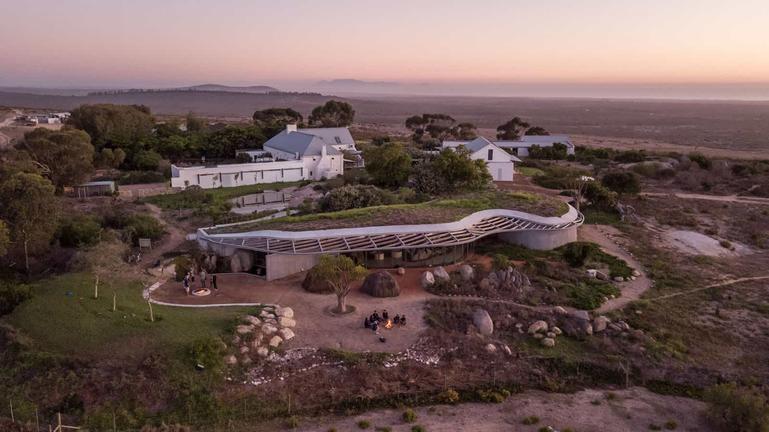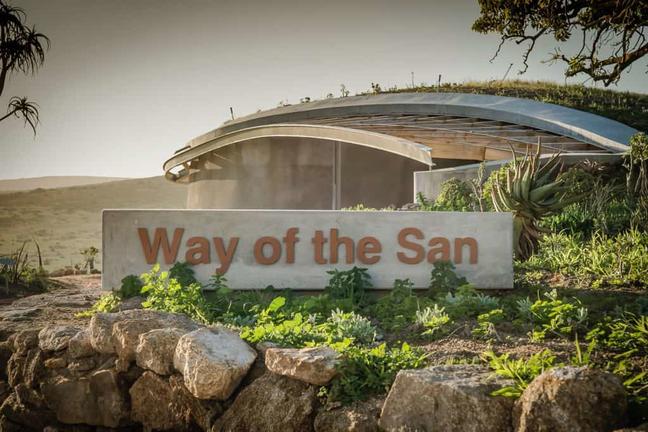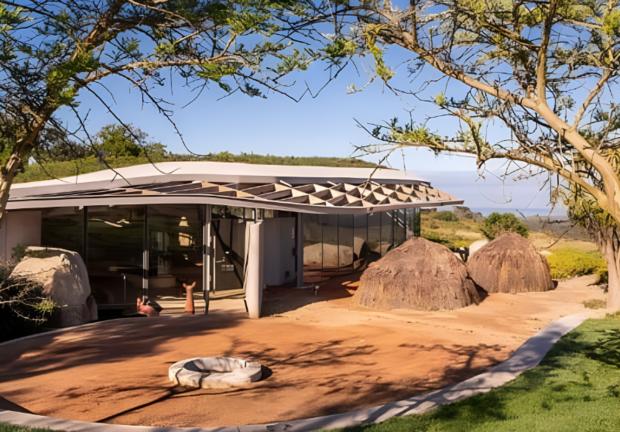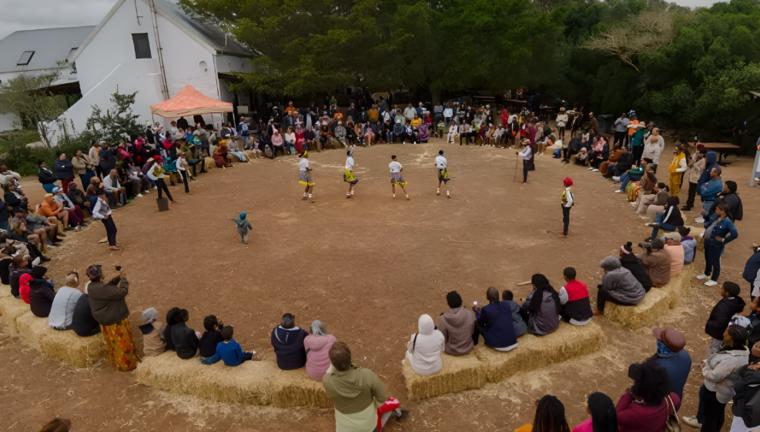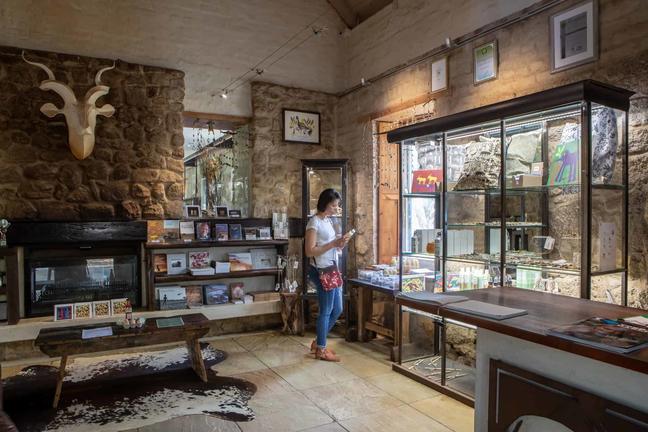Enter the world of the San, Southern Africa’s First People. As one of the last hunter-gatherer societies left on earth, their story shows the origins of mankind. If you go back further than twelve thousand years, everyone was a hunter-gatherer. Today, approximately only 130 000 San remain, scattered across six countries. Less than 600 still live according to the old ways. Because of dis-enfranchisement, climate change impacts, and a widespread lack of understanding of their way of life, their ancient way of life, their languages, and their culture are under grave threat.
Sitting within an exceptionally significant historical and archaeological landscape, on an 850 hectare Nature Reserve, 70 kilometers north of Cape Town, the !Khwa ttu San Culture and Education Centre is an Award Winning Heritage Centre, a very different kind of museum. Outside, the land was carefully rehabilitated, and wildlife reintroduced. Inside the restored farm buildings, the unique museum came to life, telling the San’ story. But it’s not just their story. It’s yours as well. This museum exists to document the San and teach others about their past and that of all mankind.
The museum experience involves much more than their prize collection of artefacts and historical photos. It's a pioneering initiative embracing the principle of community curation. The ‘Way of the San’ building allows guests to step into the heart of traditional San life in the Kalahari. !Khwa ttu San Heritage Centre is a collaborative enterprise bringing together a diverse group of people and scholars, from San community members and South African and international academic, museum and exhibition design experts, including such institutions as Oxford’s Pitt Rivers Museum, The South African University of Cape Town, and Harvard’s Peabody Museum to name a few.
The featured exhibitions include Genetics and Human Origins, the Emergence of Human Creativity, the Loss of San Land and Lifestyle, and the profound San Healing Dance.
Both history and location matter as the !Khwa ttu is situated in the Cape Floral Kingdom, a UNESCO World Heritage site. The museum embraces and champions a range of environmental stewardship programmes. San-led trails and guided experiences are designed to engage body and senses, as well as the mind, enabling the guides to share their heritage, in their own way.
As Archbishop Emeritus Desmond Tutu said, "The San, the first people to inhabit Southern Africa, represent a 100,000-year-old culture which should be considered one of the world's treasures."
With a busy restaurant, stylish guest houses, open air tented camps, thrilling mountain bike trails, and a shop selling unique hand-crafted gifts, !Khwa ttu is a thriving tourism destination.

